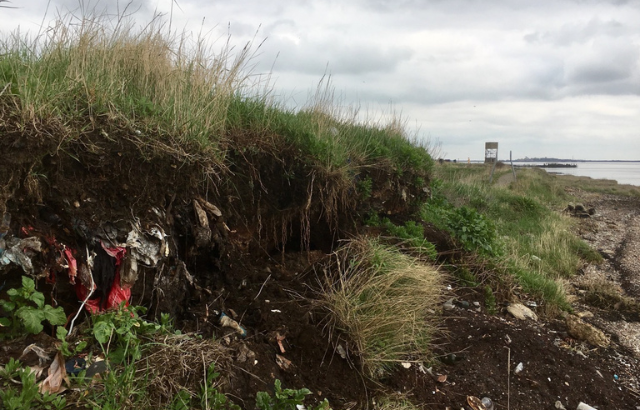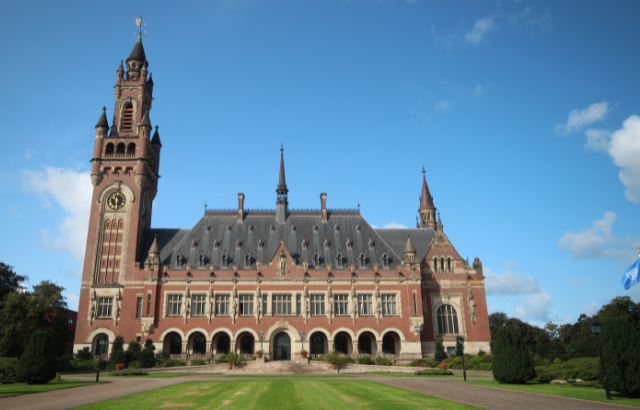Being Human ready to explore New Worlds in 2020
Queen Mary University of London is set to participate once again in Being Human, the festival which promotes public engagement with humanities research. The 2020 edition kicks off on 12 November.

Being Human is a national forum for public engagement with humanities research.
The theme for the 2018 edition of Being Human is New Worlds and a range of different activities have been planned around this topic.
In light of this year’s extraordinary circumstances, for the first time ever the festival programme contains a range of online events including digital exhibitions, workshops, quizzes, talks and debates as well as socially distanced in-person events.
New Worlds
Queen Mary has contributed to several exhibitions and online initiatives as part of the 2020 festival. The first event, Covid-19 in 2020: Apart but Together, will take place on 12 November. This physical magnet exhibition will be held outside at Queen Mary University of London for those that want to visit an exhibition in person.
An online exhibition of Covid-19 themed art will also be released throughout the festival, alongside an evening of online storytelling on Friday 20 November where people will share their stories of this new world.
Visions of Reproduction, an online event will see historians, artists, and sociologists explore the meaning, making and circulation of biomedical and artistic representations of reproduction. They will discuss how images emerge from particular social, cultural, and historical contexts.
Poetry topples Colonialism for Being Human 2020
Dr Pen Woods from Queen Mary and The Centre for the History of Emotions has teamed up with poet, Laila Sumpton, and Research Director, Dr Victoria de Rijke from the Centre for Education Research & Scholarship in the Department of Education at Middlesex University, to create 4 public workshops running on 14-15 Nov and 21-22 November as part of Being Human this year.
The ‘Poetry Versus Colonialism’ workshop series uses hands on art and creative writing practices to build connections and awareness of the histories and legacies of Empire and the slave trade and enable participants to remake their sense of the world and their place in it.
Dr Natt Day, Public Engagement Officer at Queen Mary’s Centre for Public Engagement said: “Queen Mary University of London has been taking part in the Being Human Festival for years and it’s always been a fantastic way to engage audiences with the world-leading research that we do here and bring events to life across the capital and beyond.”
Dr Pen Woods added that: “In such uncertain times, it has never been more important for us to hear more about the legacies of British colonial history and understand the different implications these events have for neighbours, friends and colleagues, and for different generations living together in this country. In a second National Lockdown we invite people of all ages across the country to come together online in this moment of social distance in order to hear stories and take time to make and write themselves into a new world of understanding, recognition and hope. These workshops are the first step in a wider arts and poetry project funded by the Arts Council England involving schools and young people around the country and beyond these shores”.
Laila Sumpton, Poet, said: “We are delighted that 'Poetry Versus Colonialism' has received funding from Arts Council England- which will enable us to take these workshops about exploring the history of Empire to schools, museums and teacher trainees. We will launch a series of educational resources and an anthology of poetry from students and the poets we are working with.”
On 14 November, an interactive online workshop, Many Hands, will take place. Including poets and historians, weavers and dancers, it unravel the histories of weavers in Bengal and their treatment under British rule.
All That Glisters is Queen Mary's contribution on 15 November. In this interactive online event, participants can learn about the complex histories of gold mining and artistry in Ghana and the UKs role in importing gold, its use in currency and art, the role of the Goldsmiths Company in the past and future. This event is part of the series Poetry Versus Colonialism which is part of Queen Mary's Being Human series.
On 21 November Queen Mary's Professor Nick Ridout will host an online event called Smoke Screen. This event will introduce participants to the pungent history of tobacco cultivation and trade, slavery and colonialism. It will provide an opportunity for attendees to experience the aromas involved in the brutal tobacco trade and discover how creating poems helps process and articulate complex emotions about identity and our relationship to this aromatic and addictive product with a problematic past and future. Queen Mary's final event, Sugar Sugar, will take place on 22 November and explore the role that sugar played in the history of slavery.
About Being Human
Being Human is an annual festival which highlights the ways in which the humanities can inspire and help us to understand ourselves, our relationships with others, and the challenges we face in a changing world.
Led by the School of Advanced Study, University of London, in partnership with the Arts and Humanities Research Council and the British Academy, Being Human is a national forum for public engagement with humanities research.
More information
Related items

10 December 2024

10 December 2024
For media information, contact:
